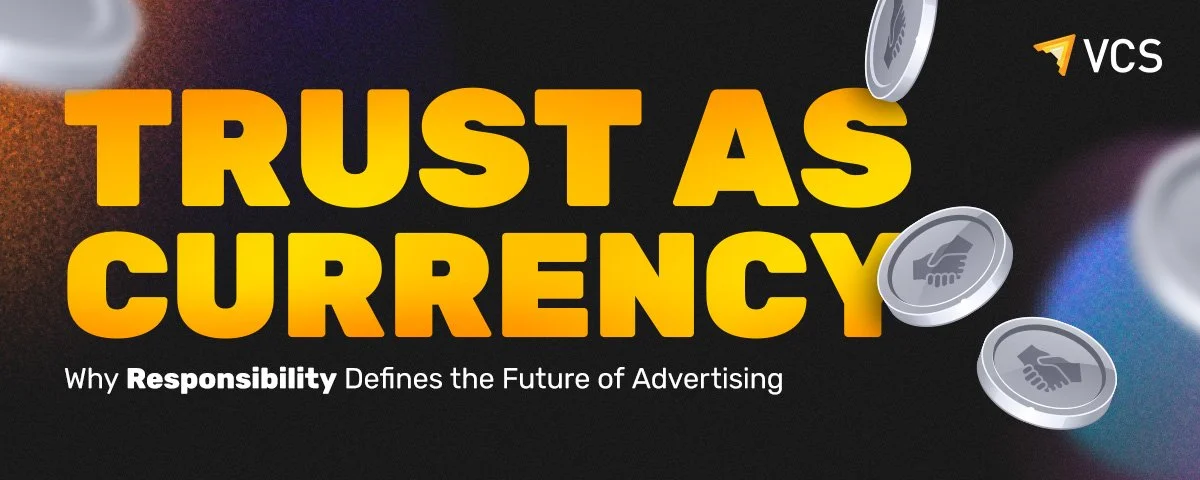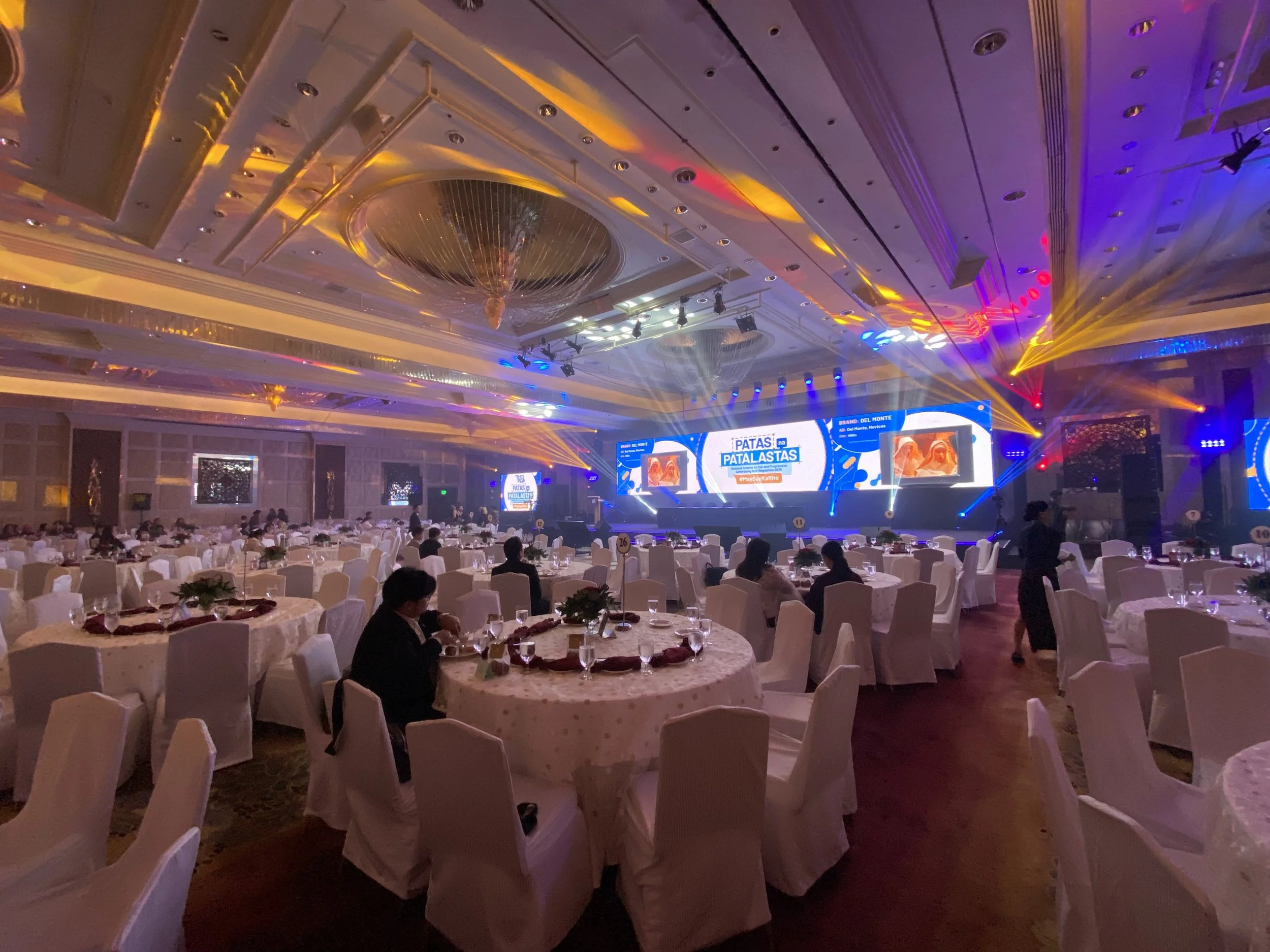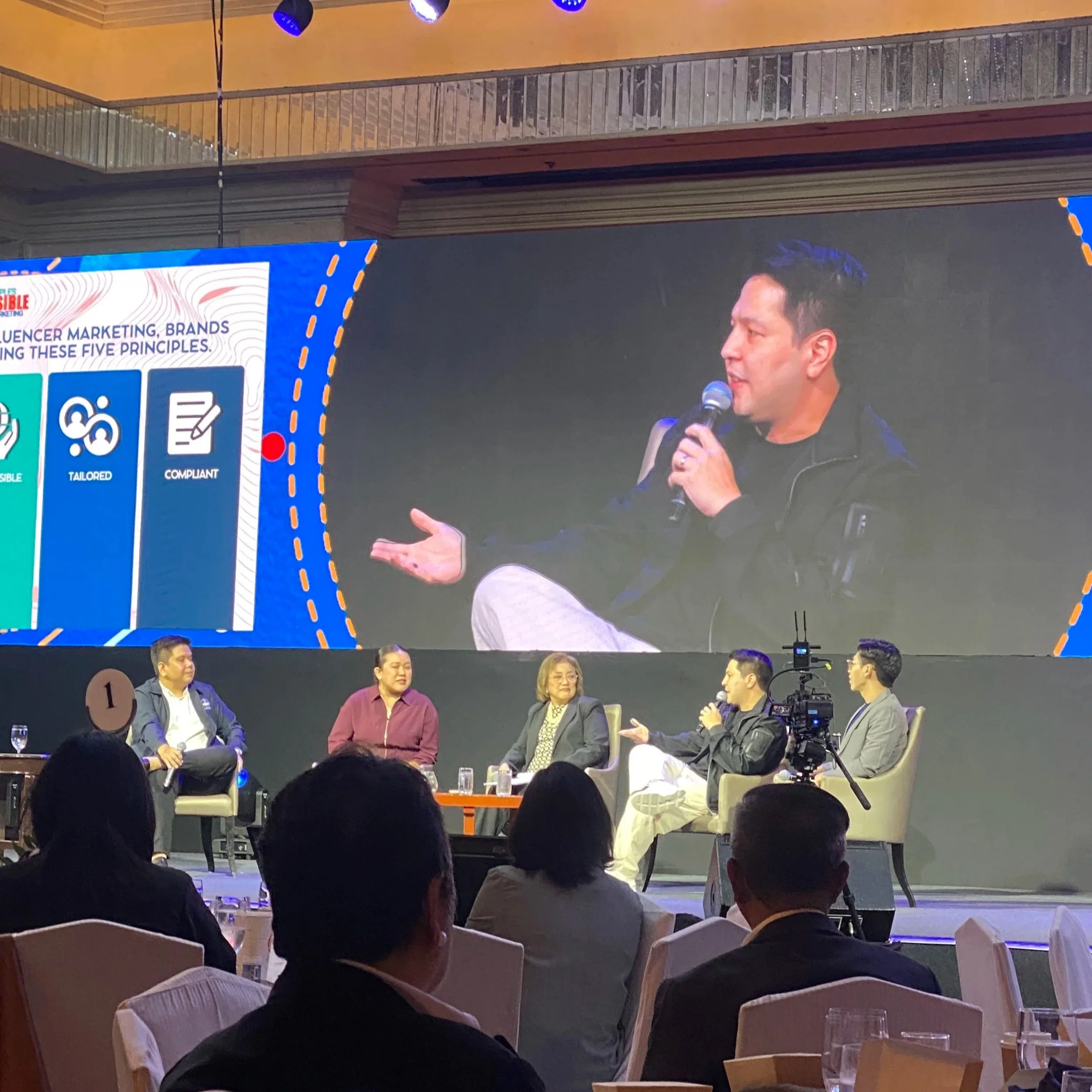Trust as Currency: Why Responsibility Defines the Future of Advertising
Written by: Nichole Quintos
With technology reshaping how Filipinos consume media, how does advertising uphold truth and fairness?
According to GMA News, 51% of Filipinos online struggle to tell fact from fiction. With 69% unable to spot fake news in traditional media, and AI tools making it harder to separate truth from falsehood, the role of responsible advertising has never been more urgent.
For decades, the Ad Standards Council has served as the Philippines’ independent, self-regulating authority, guiding advertisers to uphold ethical standards while allowing creativity to flourish
ASC Summit set up at the Makati Shangri-La Hotel
Responding to these realities, the ASC Summit 2025 highlights the theme: ‘Patas na Patalastas: Fair and Progressive Advertising Self-Regulation.’.
With laws falling behind digital change, self-regulation becomes vital to safeguard consumers and guide responsible advertising.
Truth in the Age of Disinformation
At a time where lies travel faster than facts, the battle for truth has become central to advertising, journalism, and democracy itself.
Nobel Peace Prize laureate, Rappler CEO, head of The Nerve, Maria Ressa speaks on the threat of disinformation to democracy
Maria Ressa, journalist and CEO of Rappler, emphasized this urgency by warning that “without facts, you can’t have truth. Without truth, you can’t have trust. Without these three, we have no shared reality.”
She emphasized that brands and advertisers must align themselves with “information integrity” rather than disinformation, noting that trust is “broken everywhere around the world.” For Ressa, advertisers hold the power to spread inspiration as effectively as anger, and they must demand accountability from tech platforms so that advertising strengthens democracy instead of undermining it.
Award-winning journalist Kara David built on this perspective by examining how social media has blurred the line between truth and falsehood. Citing Nietzsche’s idea that “there are no facts, only interpretations,” she warned that such reasoning has been twisted to legitimize “alternative truths.”
With 70% of Filipinos now getting their news from social media and over half admitting they struggle to distinguish real from fake, David pointed out the urgent need for responsible storytelling:“If they can pollute the internet with lies, we can pollinate it with the truth,” she said, urging advertisers to borrow lessons from journalism: immerse, fact-check, and ask the hard questions to strengthen rather than distort public understanding.
From a sociological lens, Dr. Louie Ignacio explained how disinformation corrodes trust in society through social media bandwagon effects, mob mentality, and a culture that prizes speed over reflection.
UST Sociology Department Chair Dir. Louie Ignacio on the Filipinos’ online behavior towards fake news
In education, he noted, digital tools are taught without digital literacy, leaving students fluent in usage but weak in discernment: “Truth is only one, regardless of convenience,” Ignacio stressed, warning that while lies may spread faster, truth remains an ethical and collective duty.
For advertisers, this means building campaigns grounded in authenticity: “as advertisers, you have to trust your product, it’s the only way to tell the truth.”
Together, the speakers highlighted that the fight against disinformation is not just a media problem but a shared responsibility where advertising has real power to protect truth.
For VCS, this means that creative work must be built on truth. Strategic creativity is about designing systems that ensure accuracy, consistency, and integrity. We must make sure campaigns also protect public trust by embedding fact-checking and ethical storytelling into the creative process.
Marketing and the Next Generation
Nutrition in childhood is the foundation of lifelong health, and the messages children and parents receive from brands can shape those choices.
Caitlin Nina Punzalan of Mondelez Philippines, Caroline De Leon of Del Monte Philippines, Cecille Aldueza-Virtucio of the Batangas Egg Producers Cooperative, and Christopher Ilagan of PepsiCo discusses responsible marketing for children, moderated by veteran broadcaster and voice artist Pinky Aseron alongside Robbie Aligada, Executive Director of the ASC
The conversation turned to how brands shape eating habits, lifestyle choices, and even values among children and youth. Panelists including Caitlin Nina Punzalan, Caroline De Leon, Cecille Aldueza-Virtucio, and Christopher Ilagan were quick to emphasize that their marketing strategies are directed not at children but at parents, who ultimately control the household budget: “Our advertisements, our marketing is not actually directed to children. It’s to the parents. Because they have the purchasing power.”
Another added, “We do not communicate to children directly. We talk to the mom, to the decision maker, to the guardian.” This highlights the role of parents in shaping the health and well-being of the young generation.
Transparency emerged as another critical theme, with companies acknowledging the need to equip parents with clear, honest information that helps them make informed choices: “We really make it a point to ensure that any information we’re putting out there for the consumer is for the parents to make that decision—through labeling, through packaging,” one panelist noted.
Still, the discussion wrestled with the question of approach: “Do we want to warn? Or do we want to educate?” The consensus leaned toward education over fear-based messaging; sustainable behavior change is more likely when consumers are empowered with knowledge rather than intimidated by cautionary labels.
Beyond labeling, participants also stressed the importance of communication in shaping healthier habits: “Our advocacy is to promote mindful snacking, minding how much you eat as well as how you eat, so that you enjoy the full experience without overconsumption.”
They acknowledged that while reformulating products or changing packaging may take time, communication can serve as a “low-hanging fruit” for immediate impact.
Ultimately, the speakers emphasized corporate responsibility: balancing affordability, accessibility, and nutrition while ensuring food remains enjoyable: “At the end of the day, we want children to not only eat nutritious food but also enjoy it.”
This is where design meets responsibility. At VCS, we believe clarity in communication, whether through packaging, campaigns, or digital platforms, can empower families to make informed, healthier choices. We see creative work as an opportunity to educate, ensuring that messaging shapes a generation with intention and care.
Exploring the Boundaries and Possibilities of AI
In 2025, Artificial Intelligence has quickly moved from novelty to necessity in advertising, which offers brands powerful tools to create, optimize, and personalize campaigns at scale.
Introducing the session and speakers on ethical use of AI with Atty. Joshua Jerome Santiago, managing partner at JSTP Law Offices and founding executive member of the Philippine AI Business Association and Carljoe Javier, Chief AI Ethicist and educator at the Ateneo de Manila University
However, as Atty. Joshua Santiago cautioned, “Never make the output public without your input.” While AI can accelerate research, automate creative drafts, and uncover consumer insights, it cannot feel empathy, imagine beyond its data, or be held accountable when things go wrong: “Your AI cannot be sued, fired, or go to jail. You can.”
Advertisers, therefore, must recognize AI as a co-pilot, useful for efficiency, but never a replacement for human judgment, creativity, and ethics.
For creatives like Carljoe Javier, the opportunity lies not in using AI to flood audiences with more content, but to deepen storytelling: “Am I just going to use this to generate crappy videos? Or can I actually find some way that is more artistic?” he asked, emphasizing that meaningful creativity remains a human responsibility.
The risk, Javier warned, is that unchecked AI adoption will saturate an already noisy media landscape, wearing attention and trust down instead of building them.
For VCS, we see AI as a tool for Creative Intelligence, not a replacement for it. We use it to strengthen systems, speeding up workflows, scaling campaigns, and analyzing insights, while keeping human intentionality at the core.
The conversation made clear that the question is not whether AI will compromise truth in advertising, but whether advertisers will compromise truth through AI. Responsible adoption requires transparency, rigorous fact-checking, and an ethical commitment to use technology in ways that elevate, not undermine, public trust.
Influence and Accountability
Influencers have become today’s trusted voices, shaping consumer choices in ways traditional ads once did, but with influence comes responsibility.
Discussions on responsible influencer marketing with Jim Christopher Guzman, Digital Director at Unilab and founding president of the Creator and Influencer Council of the Philippines, Kara Santiago-Dagdag, CEO of Link Strategies, well-known radio host Gino Quillamor, and actor and content creator Philip Hernandez, popularly known as Davao Conyo
Jim Christopher Guzman noted, “We’ve seen the shift from traditional to digital. Transparency, authenticity, and responsibility have always been important, but compliance is where we really need to focus now.” This shift highlights the challenge of ensuring that influencer marketing not only connects with audiences but also remains fair and accountable.
The blurred line between authenticity and paid promotion was a recurring concern: “In radio, we had bosses and regulators telling us the boundaries. But now, anyone with one viral video can suddenly have a megaphone, without training or accountability,” said Gino Quillamor.
Philip Hernandez, known as Davao Conyo, added, “The internet broke the mold, anyone can be a content creator. But that also means self-regulation is key.” For creators like him, authenticity is not negotiable: “Every video, even if it doesn’t go viral, has to be loved.”
As brands navigate this landscape, agencies play a key role in matching the right influencer with the right objective, whether for sales, education, or advocacy. This ensures campaigns maintain trust while driving impact.
Influencer marketing as an extension of storytelling, one that demands alignment of values, not just reach. Our role, as a creative agency, is to design partnerships where authenticity and accountability come first, ensuring that every collaboration is credible and consistent with the brand’s long-term integrity.
Designing Creativity with Integrity: Industry Takeaways
Across the sessions, five themes consistently emerged as the pillars of responsible advertising: truth, care, innovation, fairness, and accountability.
Pledge of partnership between the ASC and various government agencies to further strengthen responsible and ethical advertising
These principles stressed the need for advertising that protects. For agencies like VCS, this means balancing bold creativity with deep accountability, ensuring that every campaign respects its audience as much as it inspires them. Advertisers must not underestimate the audience; our campaigns should challenge them to discern, invite them to think critically, and trust them to question.
Responsibility and integrity must be embedded into every creative decision, not treated as afterthoughts or surface-level aesthetics. True creativity, the discussions revealed, is not just about standing out but about standing for something, an approach that allows advertising to thrive while earning the trust it depends on.
Empower Audiences Through Truthful Advertising
So what makes advertising trustworthy? The answer lies in collective responsibility.
Advertisers, brands, regulators, creators, and even audiences all share the duty of ensuring that communication uplifts rather than misleads. As Maria Ressa reminded, “Without facts, you can’t have truth. Without truth, you can’t have trust.” Trust, therefore, is the currency that sustains both advertising and society.
Honesty and respect are non-negotiable, the audience deserve campaigns that not only inform but also empower them to ask questions, weigh choices, and think for themselves. Fair and progressive advertising encourages critical engagement instead of passive consumption.
To create stories that endure, we must uphold the truth that grounds them.
WATCH: See more of what transpired in the ASC Summit through our Highlights Reel
https://www.facebook.com/share/v/1DaJ2Up6SB/
Work with us:https://www.vitalstrats.ph/contact-us
Explore our vision:https://www.vitalstrats.ph/about-us
Follow the journey:
FB:https://www.facebook.com/vitalstrats/
LI:https://www.linkedin.com/company/vitalstrats-creative-solutions/
IG:https://www.instagram.com/vitalstrats/
X:https://x.com/Vitalstrats
YOU MAY ALSO LIKE
Vitalstrats Creative Solutions (VCS) is a creative agency based in Quezon City, Philippines. VCS specializes in content marketing, advertising, and video production. We use strategic creativity to help our clients grow their brands.
Facebook: https://www.facebook.com/vitalstrats
Instagram: https://www.instagram.com/vitalstrats
Twitter: https://twitter.com/Vitalstrats











